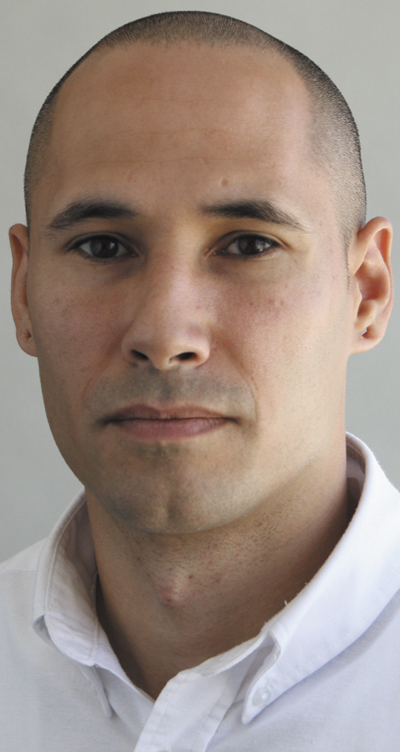WATERVILLE — A.C. Thompson, an investigative reporter for ProPublica, knows how wide the scope of human behavior is.
Thompson was honored at Colby College Sunday, given the 2013 Lovejoy Award, named after Colby College alumnus Elijah Lovejoy, an abolitionist editor who was murdered in the 1800s. Thompson, 41, whose career as a journalism started in his early 20’s, has built a career out of uncovering indecent human suffering and holding those who are responsible accountable.
“It’s not difficult to draw a line from Lovejoy to Thompson,” said Colby College President William D. Adams.
The award honors a journalist who continues Lovejoy’s example of fearlessness and freedom, according to the college’s website.
Thompson was visibly humbled by the award and the honorary doctorate bestowed on him by Adams. After thanking family, friends and colleagues, Thompson recalled a memory from his teenage years, when he read a Washington Post article about a young photographer from Chile, Rodrigo Rojas, who was murdered at a protest against dictator Augusto Pinochet.
“I remember that the story wasn’t a hard news story, it was a narrative,” Thompson said to the 100-plus in attendance.
The response he got once he finished the story resonated with him. “This made me realize that journalism has power.”
Thompson’s speech focused mostly on the work he did in the aftermath of Hurricane Katrina. He lived in the New Orleans are for more than three years, uncovering stories about racist killings and police brutality.
“Most of my stories are about awful things happening to decent people,” he said to the audience. “The heroes to me in these narratives are the people who spoke up when it was dangerous for them to do so. Like Elijah Lovejoy, they spoke up even in the face of danger.”
While Thompson has made a successful career out of journalism, he didn’t have a typical start to the profession.
“I studied at a vocational school on how to run a printing press, but it didn’t take long to realize that I was more interested in writing the stories than printing them,” Thompson said in a Thursday afternoon phone interview. “But I didn’t have any clue how to go from printing to the newsroom.”
After learning the basic structures of journalism, Thompson bounced around West Coast publications like the Oakland Tribune and San Francisco Bay Guardian. Thompson said from the start of his career, he’s focused mostly on the stories that he wants to write about — stories that he hopes can have tangible impact.
“I wanted to do stories about human suffering that doesn’t need to occur,” he said. “The work I do is identifying needless suffering and exposing that.”
Whether his stories reveal the hate crimes committed and killing of unarmed civilians by police in the aftermath of Hurricane Katrina, or working to exonerate two California men convicted of murder, the type of behavior Thompson discovers frightens him.
“The downside is, when you spend a career examining human beings, it can weigh on you,” he said. “I have a lot of nightmares. It can be a challenge when you’re examining the ugliest human behavior to keep a decent attitude toward humans. What I remember is in those grim times, people also exhibit incredible resilience and passion and love for one another.”
Thompson’s dedication to investigative journalism isn’t rooted in Internet views or how many people read his story. He writes for change.
“If people read my story and have a conversation about it, that’s great. But honestly if that’s all that happened, then I feel my story is a failure,” he said. “If I felt like I couldn’t produce work that had a real impact, I wouldn’t do this.”
Thompson is the 63rd recipient of the Lovejoy Award.
Jesse Scardina — 861-9239
jscardina@centralmaine.com
Send questions/comments to the editors.



Comments are no longer available on this story